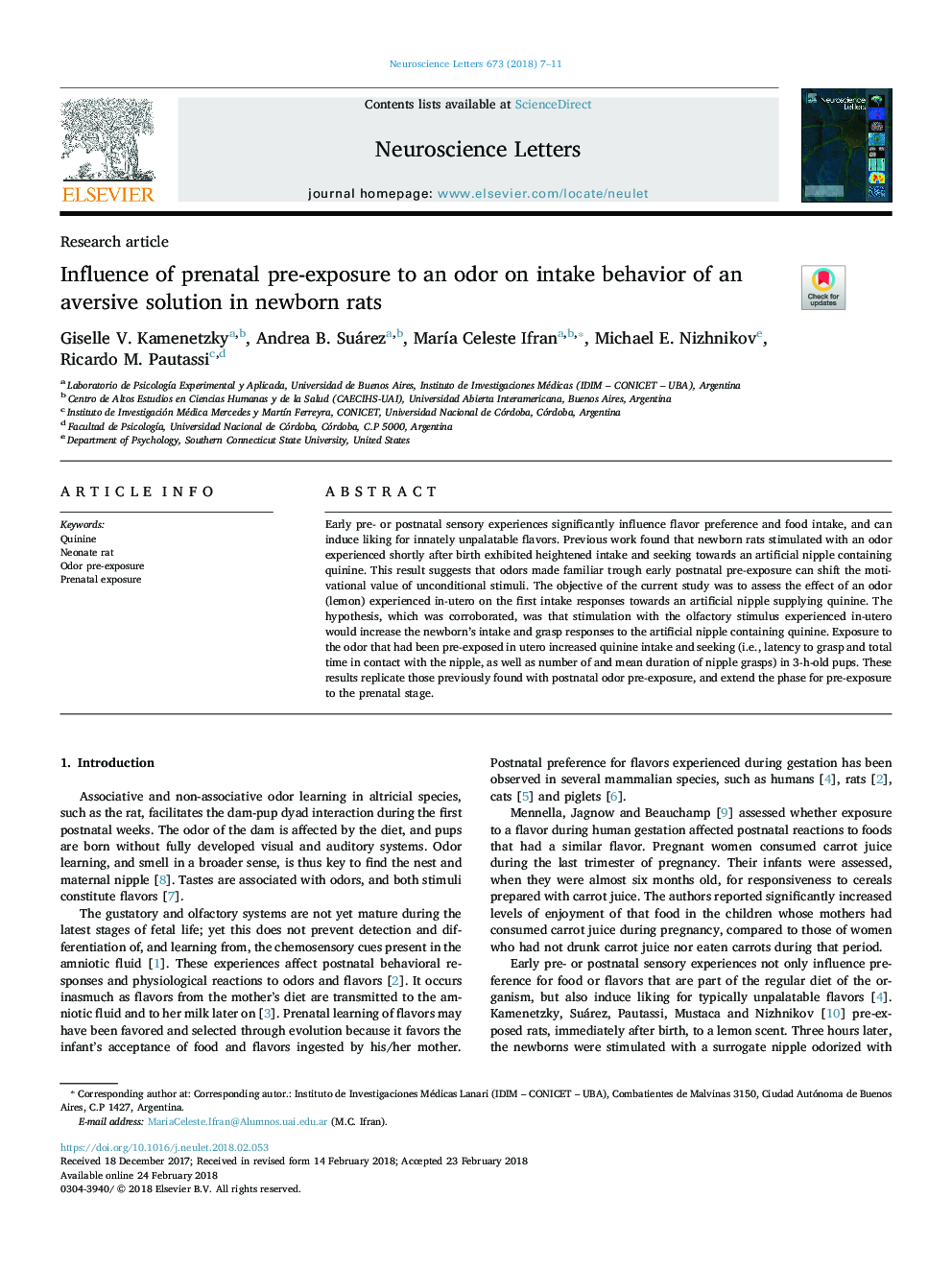| Article ID | Journal | Published Year | Pages | File Type |
|---|---|---|---|---|
| 8841579 | Neuroscience Letters | 2018 | 5 Pages |
Abstract
Early pre- or postnatal sensory experiences significantly influence flavor preference and food intake, and can induce liking for innately unpalatable flavors. Previous work found that newborn rats stimulated with an odor experienced shortly after birth exhibited heightened intake and seeking towards an artificial nipple containing quinine. This result suggests that odors made familiar trough early postnatal pre-exposure can shift the motivational value of unconditional stimuli. The objective of the current study was to assess the effect of an odor (lemon) experienced in-utero on the first intake responses towards an artificial nipple supplying quinine. The hypothesis, which was corroborated, was that stimulation with the olfactory stimulus experienced in-utero would increase the newborn's intake and grasp responses to the artificial nipple containing quinine. Exposure to the odor that had been pre-exposed in utero increased quinine intake and seeking (i.e., latency to grasp and total time in contact with the nipple, as well as number of and mean duration of nipple grasps) in 3-h-old pups. These results replicate those previously found with postnatal odor pre-exposure, and extend the phase for pre-exposure to the prenatal stage.
Keywords
Related Topics
Life Sciences
Neuroscience
Neuroscience (General)
Authors
Giselle V. Kamenetzky, Andrea B. Suárez, MarÃa Celeste Ifran, Michael E. Nizhnikov, Ricardo M. Pautassi,
